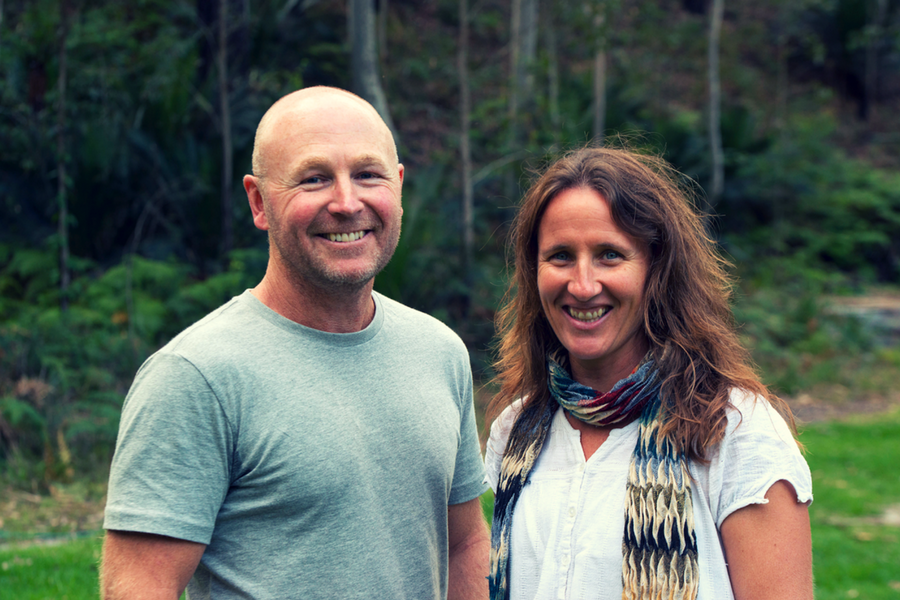It may be hard for some of us (me) to imagine, but there are those among us who, when going away, like to spend their time outside, at one with nature.
The good old caravan park has been giving these travellers the base from which to launch their perfect outdoor adventure for decades, but to help campers take the road less travelled is NSW startup Youcamp.
Cofounded by James Woodford and Prue Bartlett, the platform can be most easily described as Airbnb for the outdoors.
The platform allows landholders to list their properties for travellers to browse; offerings range simply allowing travellers in campers or caravans access to the land to park on, through to cottages or ‘glamping’ facilities.
Depending on what they have available, landholders can also extend their offering with activities, such as mountain bike riding, farm tours, fishing, and so on.
“Prue and I are landholders on the south coast of NSW. We realised that all around us was beautiful private land, containing some of the best campsites in Australia. We wanted to find a way to bring landholders and travellers together to enjoy these wonderful locations,” Woodford explained.
Seeing there was no platform facilitating this exchange yet in Australia, they decided to do it themselves.
Getting the platform up and running for launch in 2013 was a “massive job”, Woodford said. Not only did the cofounders have to learn what both travellers and hosts want, they also had to navigate the various legal frameworks regulating campsites.
“There are also a lot of regulatory hurdles for landowners to overcome because every single council across Australia has different rules for approving small-scale campsites. Even on a state by state basis the law is different so there has been a lot of work educating governments at all levels on what land sharing actually means,” Woodford said.
“We have dealt with councils on a case by case basis. In some areas we have organised stories in local papers to highlight the benefits that this kind of visitation can bring to local communities and in other areas we have worked with landholders in specific areas, liaising between Youcamp, landholders and council officers to come up with more sensible approval processes.”
The regulatory issues are what tripped up Homecamp, a Sydney-founded startup that sought to connect campers to homeowners to have them set up in suburban backyards. The startup shut down last year after a number of councils threatened to fine users who were renting out their yards, with the founders also attributing the greater appeal of Airbnb among landowners as a problem.
Focusing primarily on farmers and the activities they can offer campers on their land, Youcamp has found a path forward.
The platform allows landholders to manage all the facets of visitation, enabling them to manage bookings, and all invoicing and tax requirements. Campers, meanwhile, simply look for where they want to go, what they want to do, and what rules they want to accept, such as not having a campfire, or not being able to bring a dog, before making a booking in much the same way they would on Airbnb.
Like every other sharing economy platform, both sides of the marketplace are encouraged to review the other to build up trust.
The platform charges travellers a 10 percent fee on each booking, while landholders pay a fee of two percent on each booking to cover administrative costs, Woodford said. Listing properties is free.
The development of the platform has been funded in a few different ways; the cofounders self-funded for a few years before winning a competition run by PayPal that gave them some “much-needed” cash to keep going.
The startup then received investment from leisure retailer Super Retail Group, owner of brands including Rebel Sport and Rays Outdoors, in 2015. The link up sees Youcamp advertised in the Group’s outlets.
The first landholders to list on the platform were, of course, Woodford and Bartlett, who listed their property Cudbugga Forest. The number of landholders is now over 700, with this growth coming through social media marketing and good old word of mouth.
The key goal looking ahead is to keep growing this number to help travellers discover new experiences around Australia.
Woodford said, “[We want] to continue the job of getting the word out that some of the best campsites in Australia are on private land.”
Image: James Wooford and Prue Bartlett. Source: Youcamp.




















Trending
Daily startup news and insights, delivered to your inbox.